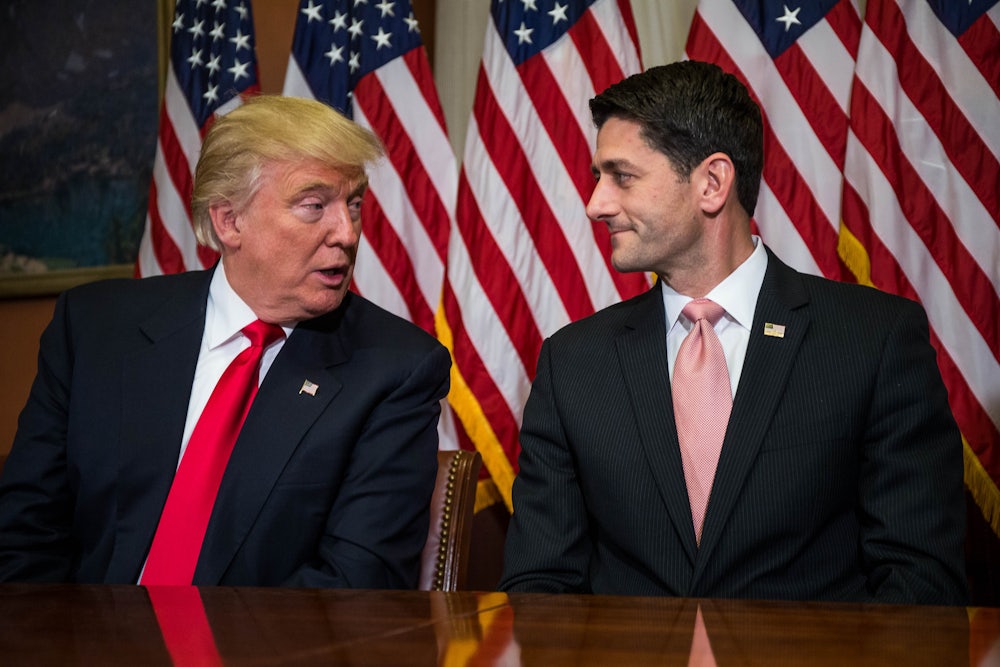Bloomberg Politics’ Sahil Kapur reminded us Thursday that the Republican Party still has no plan to replace Obamacare, even as repealing the healthcare law remains its first priority for the Trump administration. They don’t have consensus legislation, and there isn’t agreement over how many years to delay repeal implementation, for instance, though some especially courageous Republicans want to ensure its effects aren’t felt until after Trump seeks re-election in 2020.
You can understand the sensitivity, of course. There’ll be huge political backlash if millions of Americans lose their insurance and, as Kapur notes, a dozen of the states the president-elect won would be especially hard hit if insurers are once again allowed to discriminate against people with preexisting conditions. Moreover, Trump’s plan to address the effects of repeal may not fly with his own party in Congress:
Trump has proposed high-risk pools to cover sick uninsured people, but financing them will be a challenge. A 2010 estimate in National Affairs by conservative health-care experts Tom Miller and James Capretta pegged the cost at $150 billion to $200 billion over a decade to insure up to 4 million people; House Republicans have been reluctant to spend anything close to that.
It’s possible that Trump’s pragmatism and his own political interests could wind up keeping some Americans covered. (Does he really want hordes of angry uninsured voters running into the arms of Democrats?) But that would require a confrontation with a Congress that’s been running on repeal for years.
